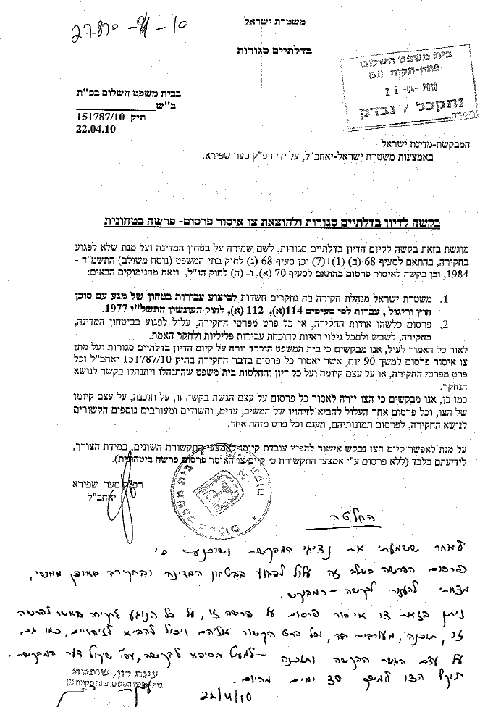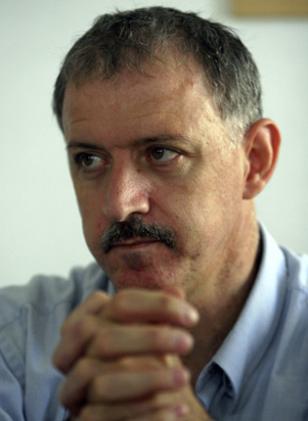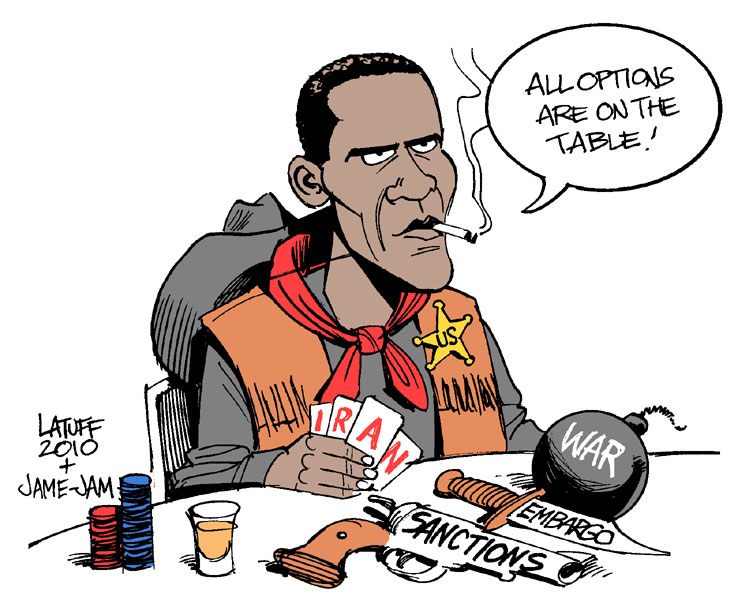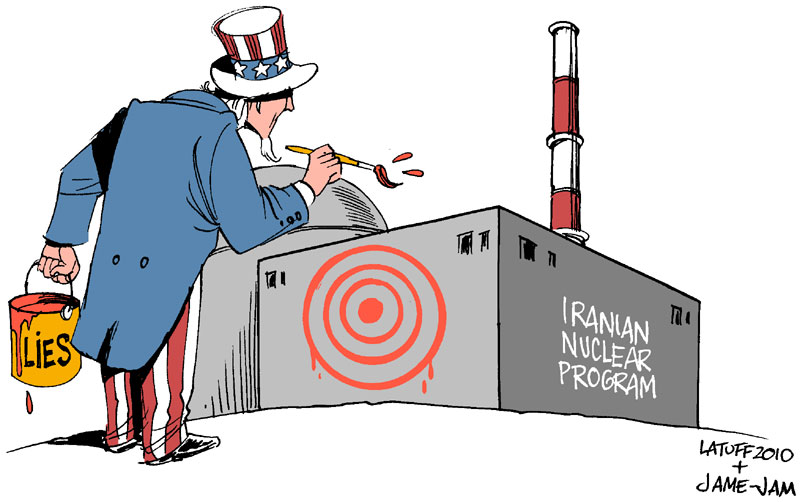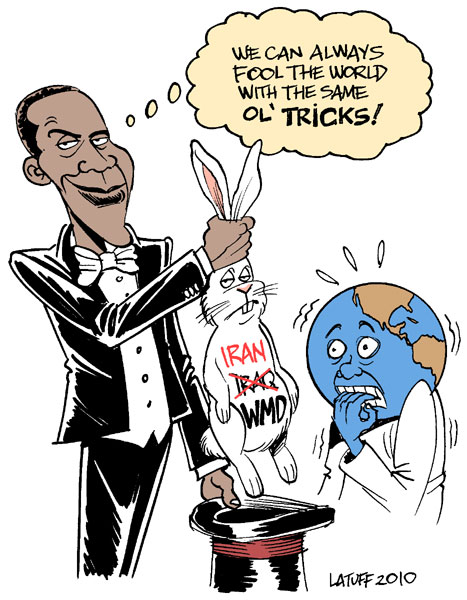Russia rebuffs Israeli rebuke over relations with Hamas: Haaretz
On Wednesday, Israel slammed Russian President Medvedev for meeting with Hamas leader Meshal in Damascus.
Russia on Thursday rebuffed Israel’s criticism of President Dmitry Medvedev’s meeting with the leader of the Palestinian Islamist group Hamas this week.
Calling Hamas “a terror organization in every way”, Israel’s Foreign Ministry said on Wednesday it was “deeply disappointed” that Medvedev met the group’s exiled leader Khaled Meshal during a visit to Syria this week.
Russia, the United States, European Union and the United Nations, make up a quartet of Middle East mediators. The U.S., EU and Israel consider Hamas a terrorist group. Russia insists that Hamas should not be isolated.
“Hamas…is a movement supported by the trust and sympathy of a significant part of Palestinians,” Russian Foreign Ministry spokesman Andrei Nesterenko said in a statement. “We have regular contacts with this movement.”
“It is known that all other participants of the Middle East quartet are also in some sort of contact with Hamas leadership, although for some unknown reason they are shy to publicly admit it,” Nesterenko said.
During the meeting with Meshal, Medvedev called for the quick release of captured Israeli soldier Gilad Shalit, held by Hamas in the Gaza Strip for nearly four years. Hamas later dismissed the Russian pressure and said Shalit would not be set free without an “honorable” prisoner exchange deal with Israel.
EDITOR: Zionism’s Lunatic Heart
You to read it to believe it. No, this is not the satire page of some left wing publication. It is the genuine article: Zionist freakish conspiracy-crazed, the-whole-world-is-against-us dyed in the wool lunacy. I raed that Obama is being carefully protected by the CIA from various white supremacist groups. Maybe the danger is coming from a different direction altogether? Maybe it is Jewish Zionist supremacists they should be watching?
Obama’s Plan to Destroy Israel: Israel National News
by Daniel Greenfield
Obama’s plan is to destroy Israel, and to do it by pushing Israel to the edge of the cliff and then over the cliff, says the writer. If you agree with this persuasive analysis, you can-or must- try to do something about it.
If there’s one thing that the Carter Administration can be given credit for, it’s creating the new wave of Islamist terrorism, both Sunni, operating out of Afghanistan, and Shiite, operating out of Iran. The Carter Administration cracked down on Israel and put its “faith” in Muslim terrorists, who then went on to wage war on America, even while Carter was in office. 28 years after Carter was removed from office, we’re in reruns again with the Obama Administration, which is not only following the Carter line, but whose plans greatly exceed it.
28 years ago, Wahhabi Sunni and Shiite terrorists were generally an afterthought when compared to the standard
Iran is to be our new best friend under this arrangement, Israel is to be our new best enemy.
USSR backed Marxist terrorist groups, such as the PLO.
Today, thanks in part to the Carter Administration, they control several countries and have designs on several more. From Pakistan to Afghanistan, from Gaza to Lebanon, from the Middle East to Southeast Asia, the threat is very real and bigger than ever particularly as the race by both Sunni and Shiite groups to build and deploy nuclear weapons continues.
Like Carter before him, Obama has chosen to cut backdoor deals with the Mullahs in Iran, offering them power over Iraq and Afghanistan, in exchange for quieting things down enough to let him hang up a Mission Accomplished banner and pull the troops out. “Peace with honor”, preferably before the next election. The rape law for Shiites in Afghanistan, the push for a US funded Hamas/Fatah Unity government in the territories and the rising expansion of the Taliban are all fruits of this arrangement.
If Iran is to be our new best friend under this arrangement, Israel is to be our new best enemy.
Obama stacked the deck by deploying Hillary Clinton as Secretary of State in a position that gave her an important title, but absolutely no power to go with it, while stacking the National Security Council and even the Pentagon with oil appointees in the pockets of the Saudis or his own left wing radical friends.
Israel electing a conservative government really put the ball into play, freeing up even more resources for attacking Israel. The strategy runs something like this.
The Obama Administration has broken down the Israel problem into two subsections, Israel itself, and American Jews.
Obama’s people have studied the problem and understand where Carter went wrong. Obama does not want to have the same image problems as Carter in the Jewish community. Should that happen, the Beloved Leader and his lapdog press are fully prepared to unleash a Chavez style hate-on targeting American Jews. But that would be inconvenient and messy. Even with the changing face of America, there are significant differences between the average American and European or Venezuelan, and what kind of ugliness they are willing to tolerate. So Obama’s people have split their attention in handling the two factors as two different problems.
American Jews – Obama has been clever about putting his Jewish appointees front and center. Like many minorities, some American Jews suffer from self-esteem problems that are soothed when they see a seeming acceptance. Of course what they fail to realize is that exploitation is not acceptance. And that Obama’s appointees are creatures of his backers, Nazi collaborators like Soros, who have nothing but contempt for Jews, individually or collectively.While outwardly courting Jews, Obama’s people have also been quietly shoving Jewish organizations and their leaders into a corner. Within the Jewish organizational world there has been a silent but deadly takeover of major Jewish groups by left wing radicals. Former alumni of the far left wing and anti-Israel groups like Breira or Coname in the 70’s have been elevated to key positions in such organizations as the UJA Federation. Behind the scenes any Jewish leaders who expressed even doubts about Obama during the primaries
The Beloved Leader and his lapdog press are fully prepared to unleash a Chavez style hate-on targeting American Jews.
were intimidated and silenced.
Much as with conservatives, a list has been drawn up of those figures who can be won over, and those who cannot. The ones who can be won over are described as “moderates”, the ones who cannot be won over are described as “extremists”.
Meanwhile a bevvy of left wing Jewish In Name Only groups have been organized to play their part. Key among them is the Soros funded J Street, a group created as an anti-Israel lobby meant to eventually replace AIPAC. Meanwhile AIPAC itself has been kept on the ropes with such things as the well timed Harman leak. The message once again is fairly clear, cooperate and keep quiet, or we’ll destroy you.
The multi-layered approach to American Jews can then be summed up as follows;
1.) Co-opt existing Jewish organizations and swing them to the left using old school 70’s leftists.
2.) Create new “progressive” organizations to appeal to a younger generation of ethnically Jewish youth detached from any actual identity. Have these organizations generate attacks on the Israeli government and pro-Israel Jews, while creating phony polls indicating that most American Jews are behind them and Obama.
3.) Silence and intimidate remaining Jewish organizations and leaders behind the scenes.
The overall idea is to keep a happy face pasted on American Jewry while the knives are out in the dark.
Israel – The basic understanding in the Obama Administration is that Israel Must Go. In the worldview of the more moderate Obama appointees, Israel is a destabilizing factor in the Middle East. To the more left wing Obama advisors, Israel is a Western imperialist colonialist state that must be destroyed in the name of revolutionary justice. To the Islamist mindset, Israel is a Kufir state that has no right to exist in the Dar Al Islam.While intractably hostile to Israel, the Obama Administration wants to avoid the kind of public confrontations that marked the Carter and Bush Sr administrations. Instead they would much rather model the way that the Clinton Administration waged a quiet war against Israel, removing one government, and forcing extensive concessions to terrorists, all the while keeping a happy face pasted on the whole affair.
On the one hand that means avoiding harsh public attacks on Israel, but keeping the pressure up for Israel to make extensive far reaching one sided concessions, to accept Saudi and Arab League “peace plans”, to legitimize Hamas as the new government of the Palestinian Authority, and to insure that Israel does not reply to any rocket or terrorist attacks.
There are two forms of quiet leverage that the United States has on Israel, the first is financial and the second is military.
On the financial side, the goal will be to bring down the Netanyahu government coalition by destabilizing Israel economically. This is the surest and most direct path to bringing down Israel’s conservative government and replacing it with a left of center coalition. The Obama Administration has a wide variety of tactics at its disposal for doing so, from the overt, such as targeting Israeli exports and imports, to the covert, that would involve targeting the Shekel. Additionally fundraising in the US could be investigated and groups such as the Jewish National Fund, prevented from raising money in the US. All of these have been in play before at one time or another.
On the military side, Obama’s people will make their non-existent efforts to stop Iran’s nukes conditional on more concessions to terrorists. Since Israel will never be able to make enough concessions and since Obama is working with Iran, rather than working to stop Iran’s nukes, this is a hollow charade.
Furthermore while Israel has already been locked out of the military technology pipeline for anything cutting edge, it still remains dependent on US military equipment for parts and supplies. The decades of US foreign aid have also served to create dependency. Unlike many other countries, including even Sweden, Israel does not have its own jet fighter. Israel’s Air Force is heavily dependent on US weapons, parts and equipment. Cutting Israel off, would leave the Israeli military dangerously vulnerable in the case of a war. This is an effective chokehold that has been used before to prevent Israel from attacking Saddam Hussein during the Gulf War, as well as preventing Israel from carrying out a preemptive strike against its enemies before the Yom Kippur War.
The overall Obama policy will be to push Israel to the brink, using financial and military blackmail against the Netanyahu government, while maintaining control over American Jews to prevent any protests or backtalk.
…American Jewish groups will support Obama… some because they were created precisely for that purpose, and others because they have been hijacked, cowed or subverted.
The more Israel will offer, the more the Obama Administration will tighten the screws. No offer will be good enough, and Israel will be blamed for every breakdown in talks and every bit of violence that takes place. The media will portray Israel and particularly Netanyahu as extremist and intransigent. Hamas will be slowly whitewashed in the media, the same way that Arafat’s goons were, (assuming that they prove more willing to cooperate in creating a positive media image of themselves than Ahmadinejad is.)
The plan is to destroy Israel, and to do it by pushing Israel to the edge of the cliff and then over the cliff. Israel’s enemies will be getting top of the line US military equipment. Israel will not. Israel will be squeezed economically until the Netanyahu government collapses, leaving a weak left wing leader like Livni in charge of Israel, and in charge of acceding to the new Pharaoh’s demands.
Meanwhile so-called American Jewish groups will support Obama all the way, some because they were created precisely for that purpose, e.g. J-Street, and others because they have been hijacked, cowed or subverted.
That is the game plan and some of it’s coming. The rest is already here.
